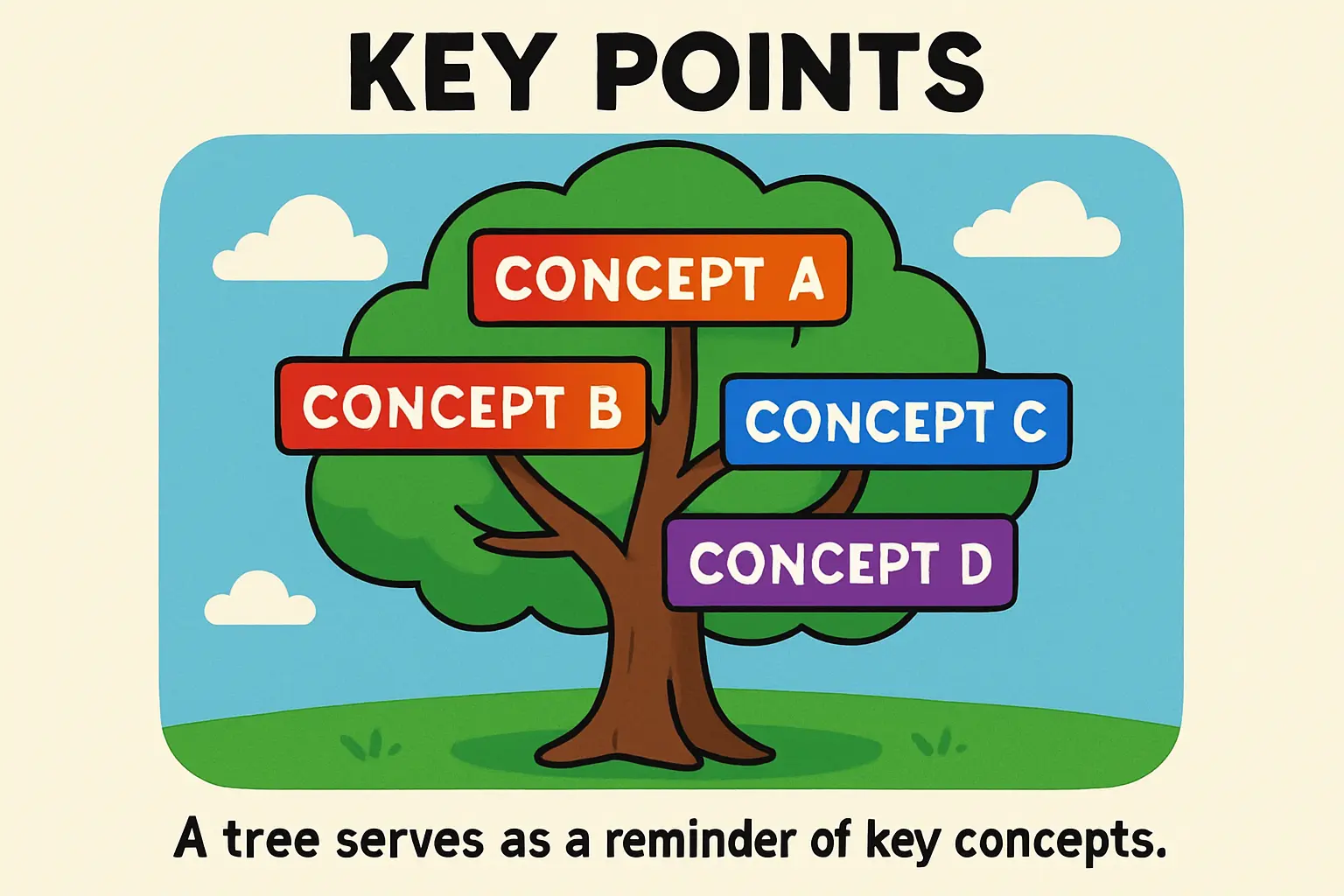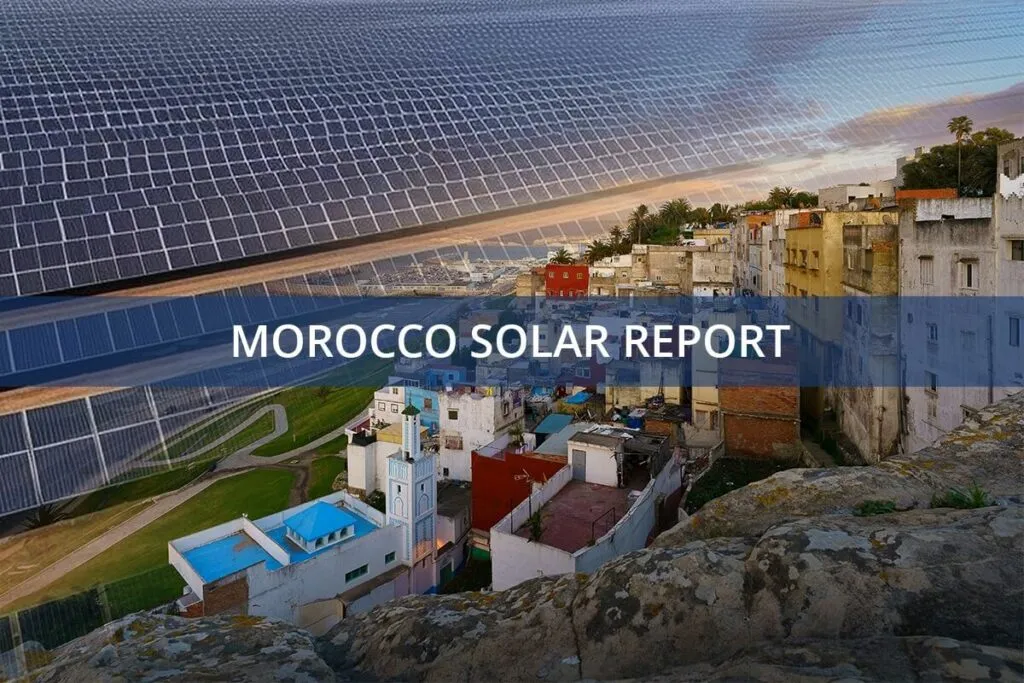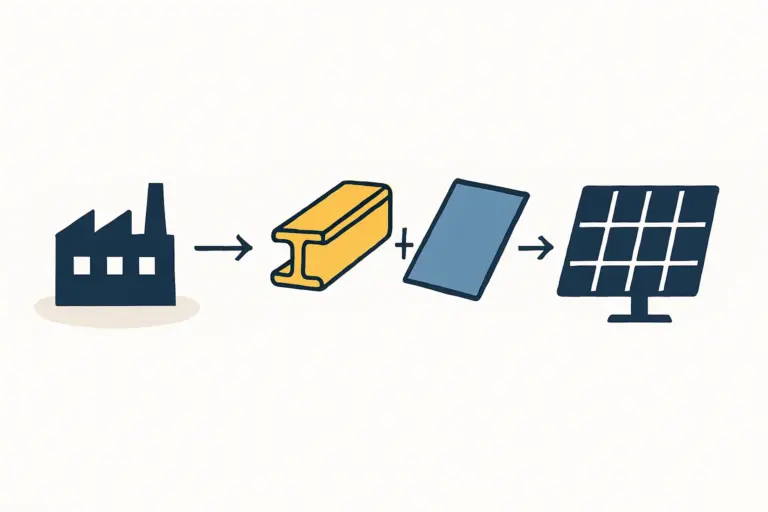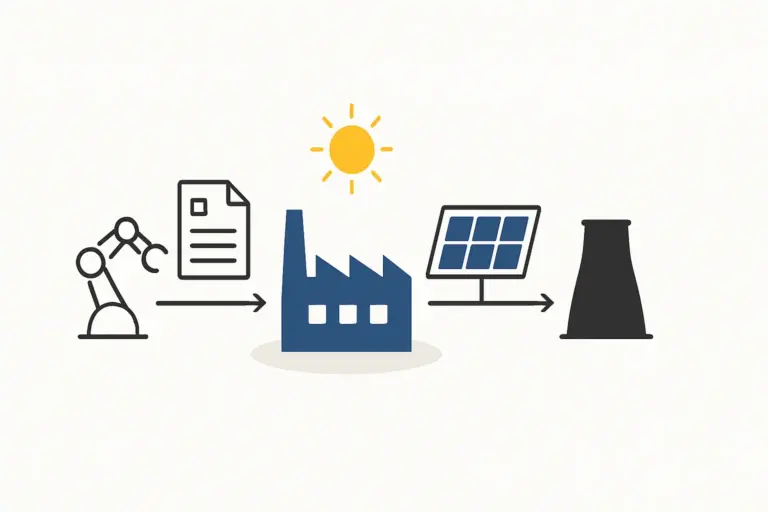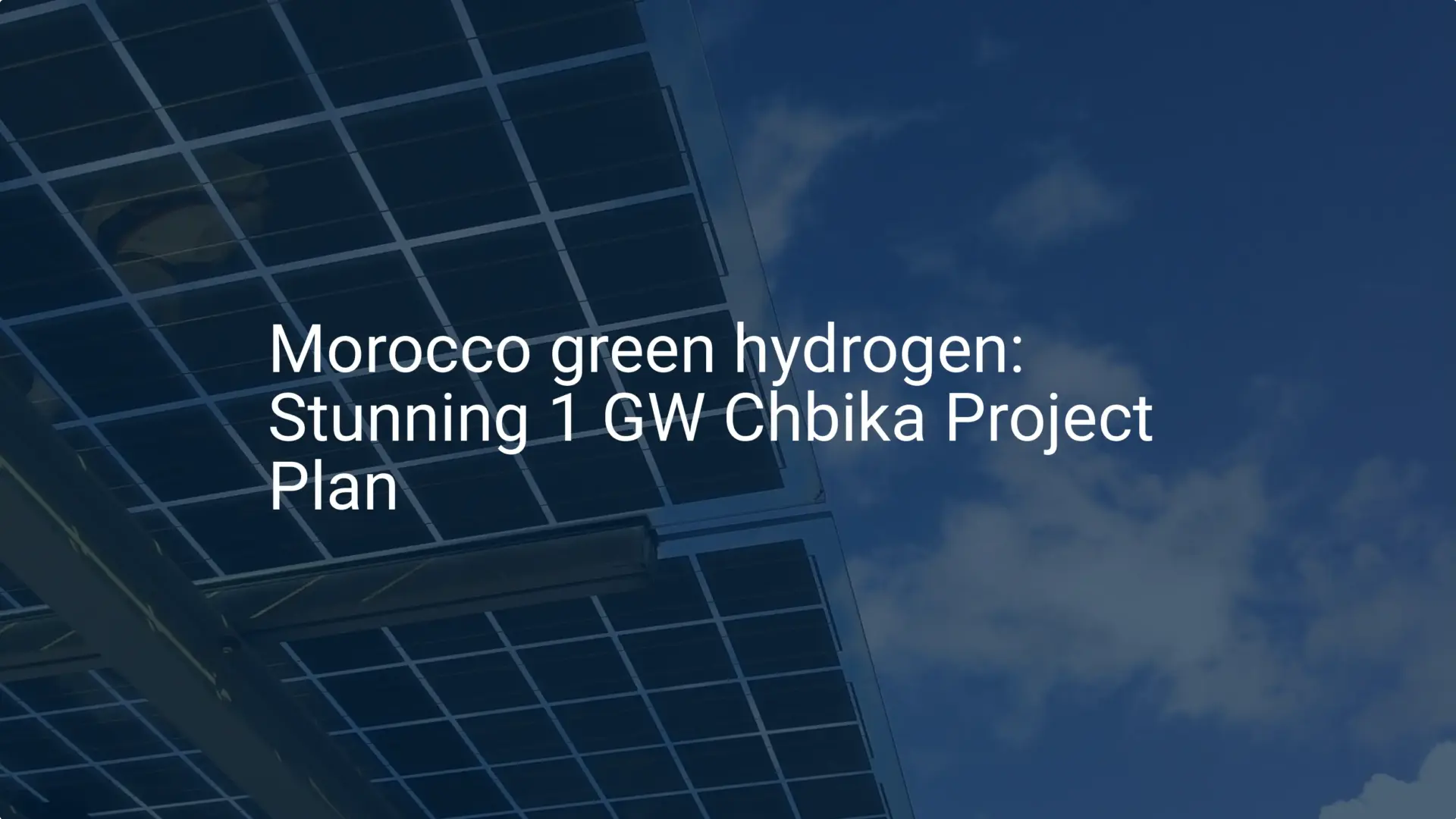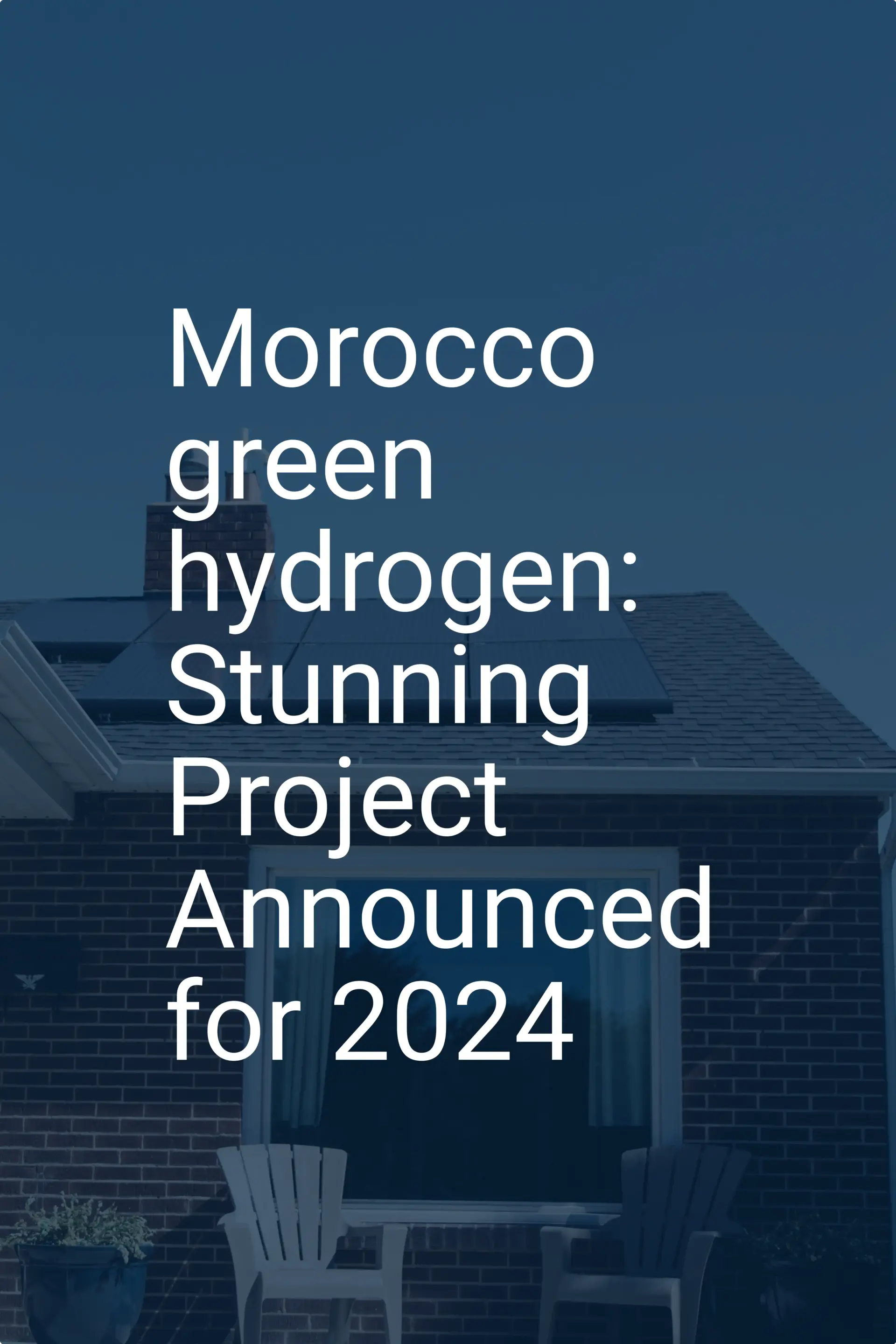Entrepreneurs weighing a new venture in solar panel manufacturing face a complex landscape, from technology choices to market entry strategies. In a country like Morocco, with its abundant sunshine and ambitious renewable energy targets, the opportunity is compelling.
Yet, questions about local regulations, investment incentives, and administrative procedures can obscure the path to establishing a factory. Morocco’s Industrial Acceleration Plan (PAI) is designed to address these very challenges.
This guide offers a structured overview of the PAI, tailored for business professionals and investors eyeing Morocco’s burgeoning solar manufacturing sector. It breaks down the tangible benefits, support structures, and key steps for leveraging this government initiative to build a successful enterprise.
Understanding the Industrial Acceleration Plan (PAI)
Launched in 2014, the Industrial Acceleration Plan is a comprehensive national strategy to develop Morocco’s industrial base. More than a policy document, it is a practical framework for attracting investment, creating jobs, and integrating Moroccan industry into global value chains.
In the renewable energy sector, the PAI acts as the primary engine for government support, signaling a strong and sustained commitment to building a domestic solar manufacturing ecosystem.
For solar investors, the PAI’s core objectives are to:
-
Create Industrial Ecosystems: The plan fosters clusters of related businesses to encourage collaboration and build a robust local supply chain for materials and services.
-
Attract Foreign Direct Investment (FDI): It offers a clear, attractive set of incentives that reduce financial risks and initial capital outlay for foreign investors.
-
Enhance Local Human Capital: The government actively supports training a skilled workforce, ensuring that new factories have access to qualified technical and operational staff.
For investors, the PAI transforms the prospect of setting up a factory from a high-risk venture into a structured partnership with the Moroccan state.
Key Incentives for Solar Manufacturers Under the PAI
The Industrial Acceleration Plan provides a multi-faceted support system that addresses the primary costs and challenges of establishing a new manufacturing facility. These incentives are typically formalized in an ‘Investment Agreement’ between the investor and the Moroccan government.
Financial Support and Subsidies
Direct financial contributions from the state can significantly improve the business case for a new solar factory, primarily through the Industrial Development and Investment Fund (IDIF).
-
Co-Financing of Investment: The IDIF can co-finance up to 30% of the total investment. For a project costing €15 million, this could mean a government contribution of up to €4.5 million, substantially lowering the initial capital requirement.
-
Land Acquisition Grants: The government may also offer a direct grant covering up to 20% of the industrial land cost, further reducing upfront expenses. These subsidies are a key factor when calculating the final investment requirements for a solar panel factory, as they help define the full scope of capital needed.
Fiscal and Tax Advantages
Tax incentives are designed to enhance profitability during the critical early years of operation.
-
Corporate Income Tax (CIT) Exemption: Companies established under the PAI benefit from a complete corporate income tax exemption for the first five years of operation. A reduced rate is often applied after this period.
-
Value Added Tax (VAT) Exemption: All capital goods, machinery, and tools imported for the project are exempt from VAT. This provides substantial cost savings, as the equipment on the solar panel manufacturing machine list constitutes a major portion of the initial investment.
Human Capital and Training Support
A common concern for investors in a new market is the availability of a skilled workforce. The PAI addresses this directly by offering significant subsidies for employee training, with the state contributing up to €6,000 per person for technical programs. This support is often facilitated through specialized institutes like IFMEREE (Institutes for Training in Renewable Energy and Energy Efficiency), ensuring the curriculum is aligned with specific industry needs.
Land and Infrastructure Access
The PAI simplifies one of the most complex parts of setting up a factory: securing suitable land with reliable infrastructure. The government has established numerous ‘Industrial Acceleration Zones’ (ZAI) across the country. These zones offer plots of land at subsidized prices, pre-equipped with essential utilities such as electricity, water, and telecommunications. This plug-and-play approach dramatically shortens project timelines and reduces logistical hurdles.
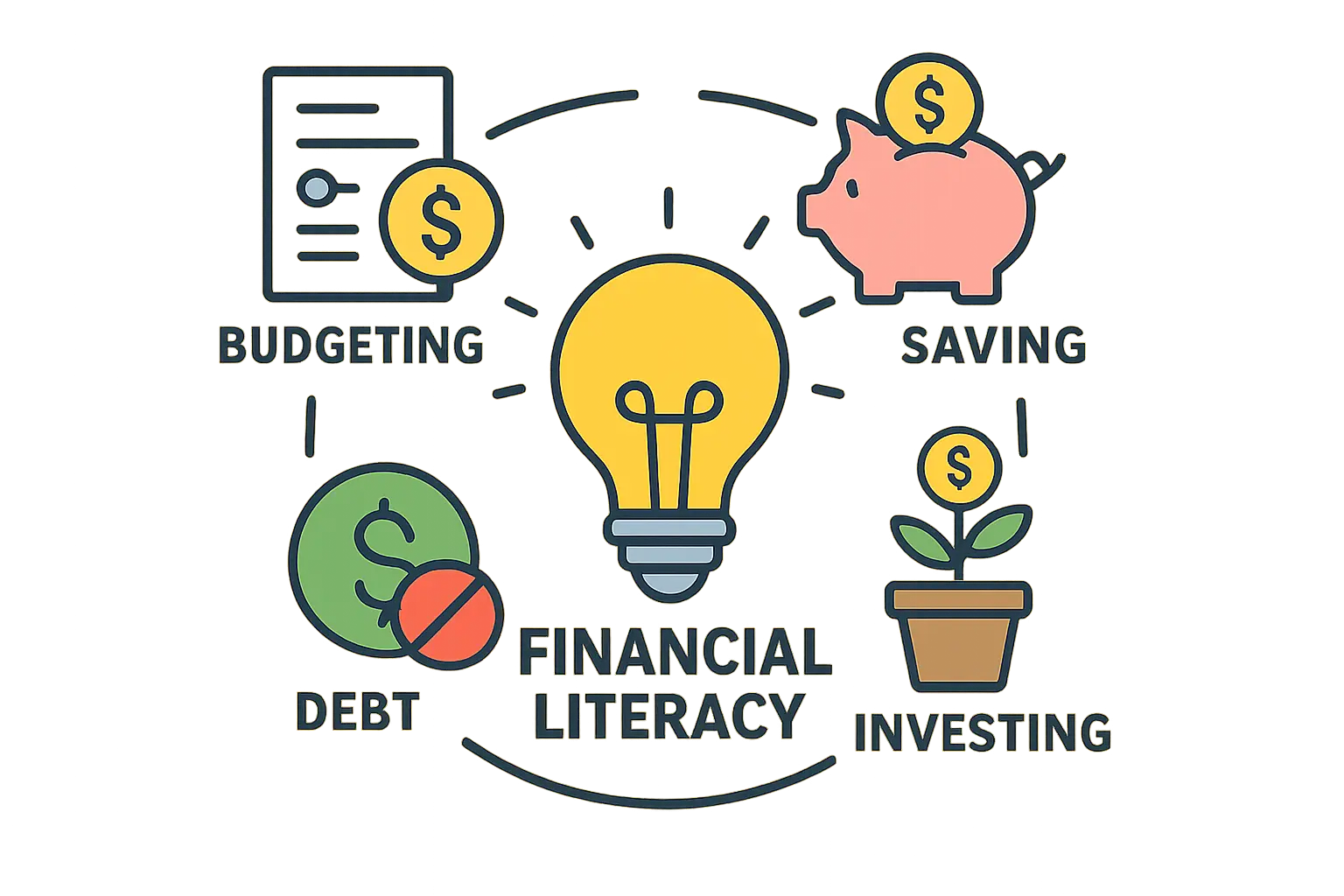
The Role of Key Government Agencies
Navigating a foreign administrative system can be daunting. To simplify it, Morocco has established dedicated agencies to act as a single point of contact for investors, streamlining communication and procedures.
The key agency for investors is the Moroccan Investment and Export Development Agency (AMDIE). AMDIE serves as the primary facilitator, providing comprehensive support throughout the project lifecycle. Its functions include:
-
Providing detailed information on the PAI and other incentive programs.
-
Assisting with preparing and submitting the investment application.
-
Coordinating with various ministries and administrative bodies on the investor’s behalf.
-
Offering aftercare services once the project is operational.
Experience from turnkey projects shows that having a central agency like AMDIE guide the process is invaluable for entrepreneurs new to the region.

Navigating the Application Process: A Practical Overview
While AMDIE provides support, any serious investor should understand the general application process.
-
Develop a Robust Business Plan: The foundation of any application is a comprehensive business plan. This document must clearly outline technical feasibility, market analysis, financial projections, and—importantly—its expected contribution to the local economy (e.g., job creation, export potential).
-
Submit an Investment Proposal: The formal proposal is submitted to the relevant authorities—typically through AMDIE—and then reviewed by an Inter-ministerial Investment Commission.
-
Negotiate the Investment Agreement: If the project is approved, the investor negotiates with the government to finalize the Investment Agreement. This legal document codifies the commitments of both parties, outlining the investor’s project scope and timeline alongside the government’s specific incentives and support.
-
Implementation and Follow-up: Once the agreement is signed, the project moves forward, and government agencies monitor its progress to ensure all commitments are met.
A strong governmental framework like the PAI significantly simplifies the entire process of how to start a solar panel manufacturing business.
Frequently Asked Questions (FAQ) for Investors
-
What is the typical timeline for setting up a factory under the PAI?
With streamlined processes for land acquisition and administrative approvals, a factory can become operational within 12 to 18 months of signing the Investment Agreement, depending on the project’s complexity. -
Are these incentives available to both Moroccan and foreign investors?
Yes, the Industrial Acceleration Plan is designed to attract both domestic and foreign direct investment. Foreign investors are entitled to the same benefits and can typically have 100% ownership of their Moroccan subsidiary. -
Is there a minimum investment amount required to qualify for PAI benefits?
While smaller projects can receive support, the most significant incentives under the IDIF are generally aimed at projects with an investment exceeding MAD 100 million (approximately €9 million), though exceptions can be made for strategically important projects. -
How does Morocco’s location benefit a solar manufacturing business?
Morocco’s strategic location is a unique advantage. It serves as a stable, competitive production hub with preferential access to the European Union (via an Association Agreement), the United States (via a Free Trade Agreement), and rapidly growing markets across West Africa. -
What are the main challenges to consider?
While the PAI mitigates many challenges, investors should still conduct thorough due diligence. Potential hurdles include navigating local labor laws, understanding customs procedures for non-exempt goods, and adapting to local business practices. Working with experienced local partners or consultants is highly recommended.
Conclusion: The Next Steps in Your Investment Journey
Morocco’s Industrial Acceleration Plan is one of the most compelling frameworks in the region for investing in solar manufacturing. It offers a structured, financially attractive, and well-supported path for entrepreneurs to establish a competitive production base.
This combination of direct subsidies, tax exemptions, and infrastructural support demonstrates a clear and reliable government commitment to the sector’s growth.
For business professionals considering this opportunity, the journey begins with thorough preparation. While the PAI provides the ‘how,’ the investor must define the ‘what.’ The logical next step is to gain a deep understanding of the technical, operational, and financial requirements of a modern solar panel factory. A well-prepared investor is best positioned to fully capitalize on the significant advantages offered by the Moroccan state.
